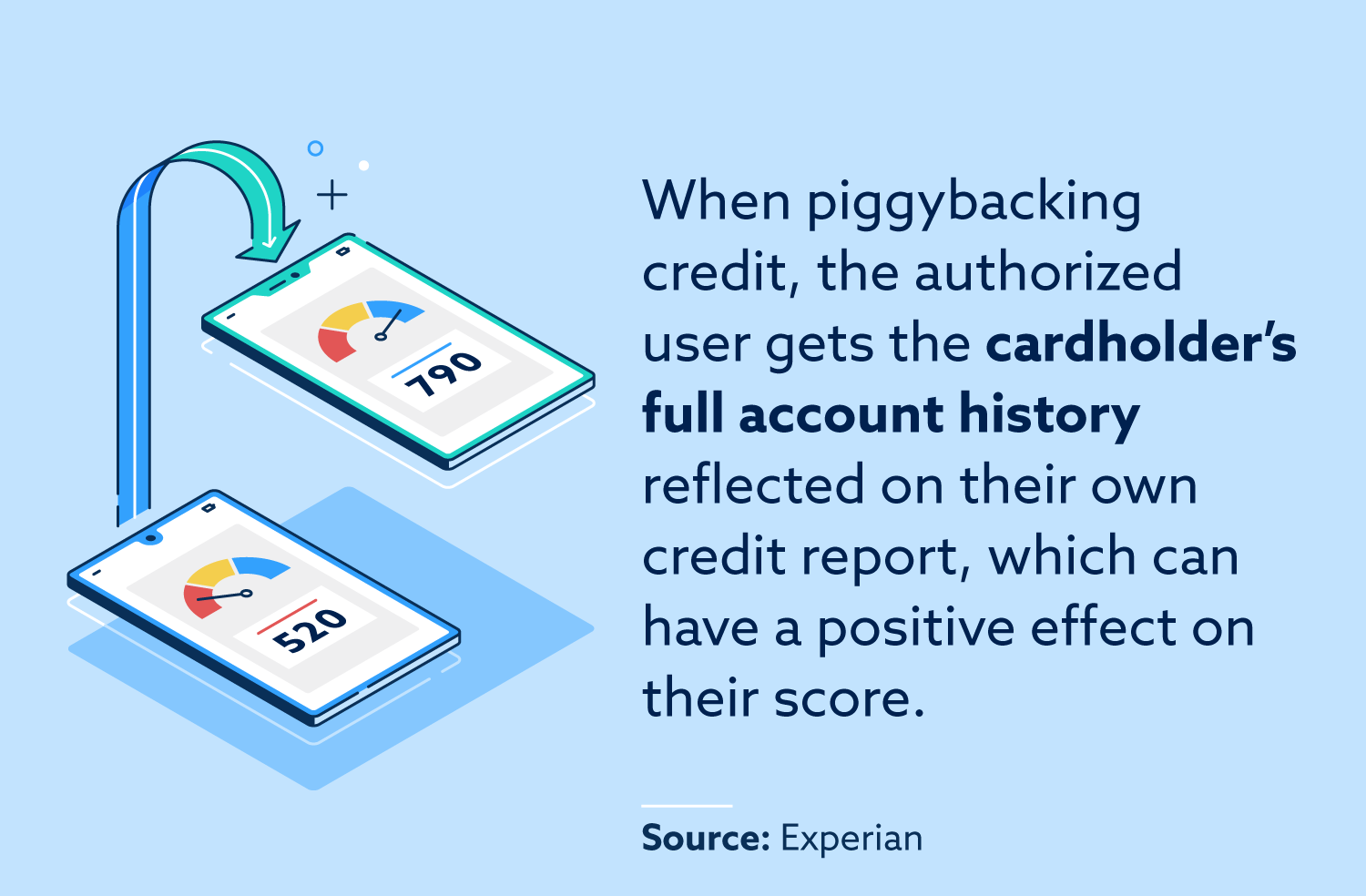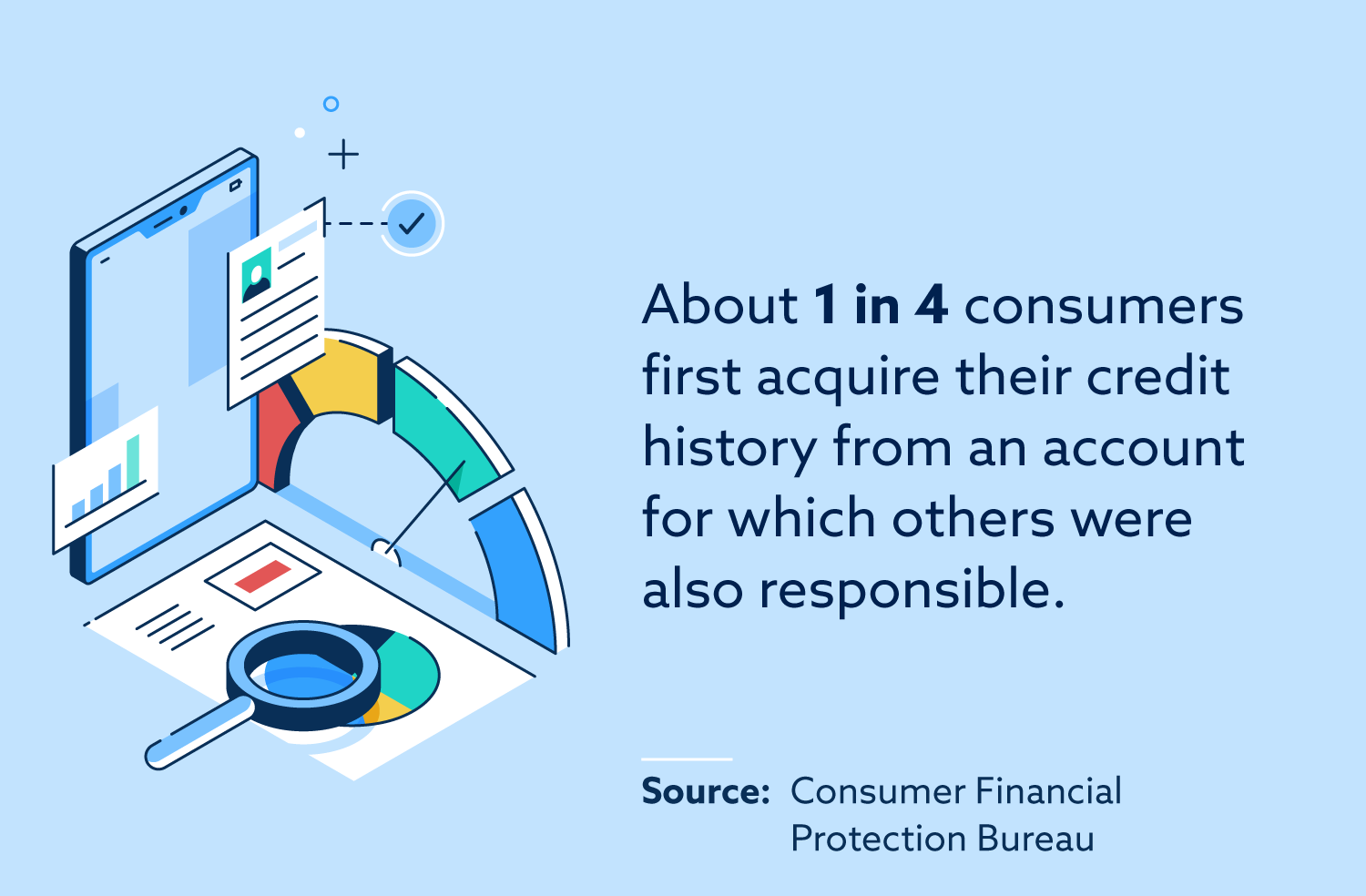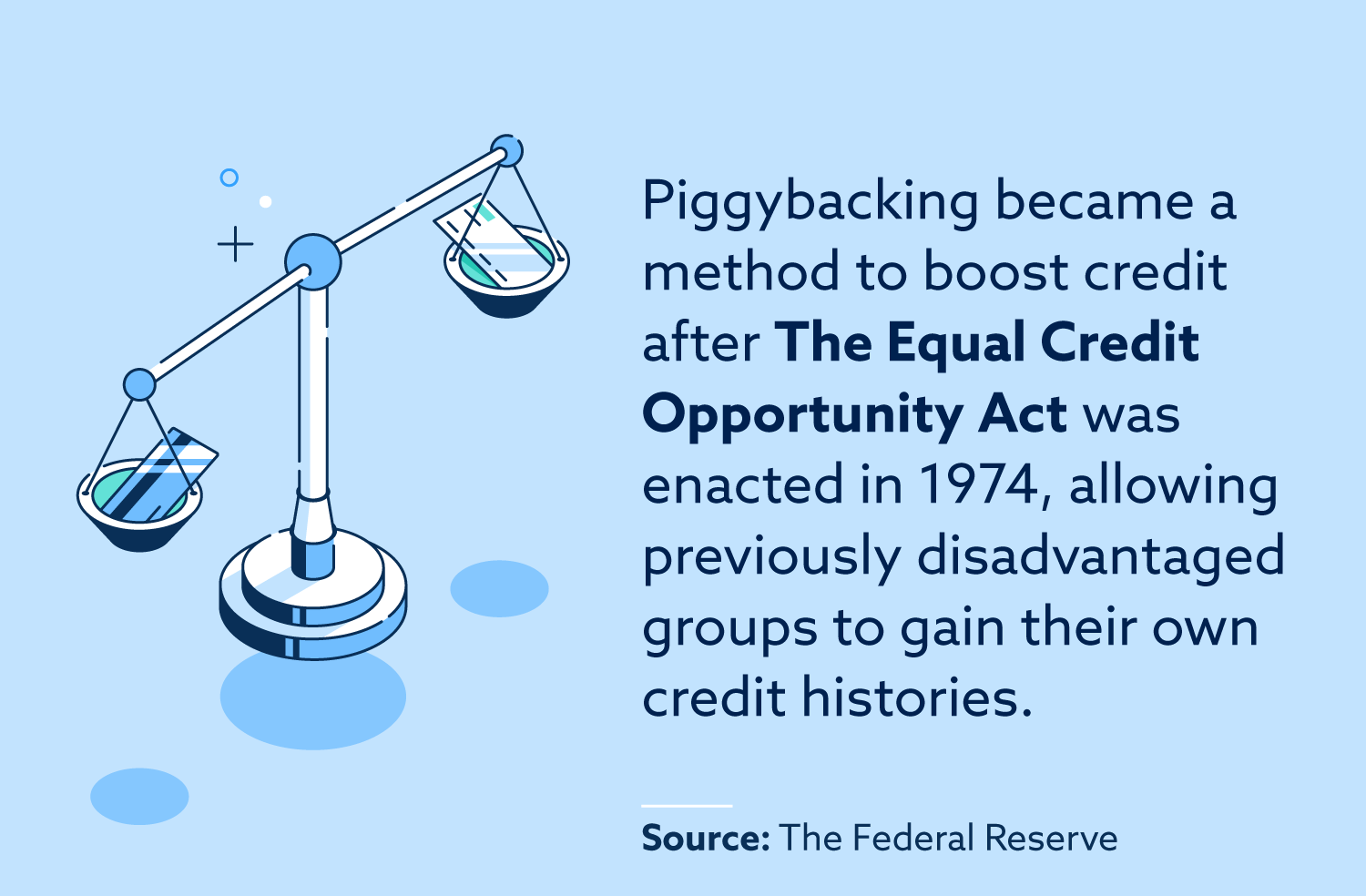
Piggybacking credit allows you to be added to another’s credit card account in order to improve your credit standing.
The information provided on this website does not, and is not intended to, act as legal, financial or credit advice. See Lexington Law’s editorial disclosure for more information.
Piggybacking credit, otherwise known as becoming an authorized user, allows you to be added to another’s credit card account to improve your credit standing. There are several reasons why you may need more positive exposure on your credit report—you could be looking to buy a car, get a loan or secure the best rates on a new line of credit, to name a few.
Some risks are associated with piggybacking credit, so it should only be used as a temporary solution.
So what is piggybacking credit, really? Below we’ve outlined everything you need to know about this credit-boosting method.
How piggybacking credit works
If an individual in good credit standing designates you as an authorized user to their credit card, that account and payment history get included in your own credit report. Piggybacking credit is not the same thing as becoming a joint account holder.
The difference is that the authorized user is not responsible for the charges made on the credit card and a joint account holder is.

The authorized user’s credit report echoes the primary cardholder’s full account history, which can raise their score.
However, if you piggyback credit with someone who has a negative credit history (frequent late payments, low score, multiple hard inquiries, etc.) or no credit history at all, you risk lowering your own credit score.

How to piggyback credit
To piggyback credit, you can get another person to share their credit rating and history with you using one of the following approaches.
Person-to-person piggybacking:
This piggybacking method involves a family member, friend or significant other with a good credit score adding you as an authorized user to share their credit reputation with you. The cardholder contacts their credit card issuer and adds you as an authorized user. You can then choose whether to get a card for the account or not.
If you get access to your own card on the account, you may receive privileges—like making charges and payments. However, you likely won’t be able to increase the line of credit or request lower rates. This method is common among teenagers who are added to their parents’ credit card accounts as authorized users, for example.
This can be a great way to get the boost of credit you need before applying for your own credit cards, loans or anything else that may require a good credit score to secure the best offers and interest rates.
For-profit piggybacking credit services:
Some people—who may not have a close relative or friend they can piggyback credit with on a person-to-person basis—also choose to rent a position as an authorized user on a stranger’s account for a fee.
In this scenario, you can work with tradeline credit repair companies that will match you with a cardholder with great credit for a fee. With this method, the cardholder gets a percentage of the fee you pay, and you will not receive an actual credit card or obtain card privileges.
Remember that for-profit piggybacking is a short-term solution, and you’ll only be an authorized user for a limited time. Once your term ends, the account will then be removed from your credit report, putting your credit scores at risk of dropping again. If you consider this approach, be very careful—some individuals and piggybacking credit companies offer this service as a scheme.
If you decide to pursue this method, we recommend that you do so through trustworthy sources.
Is piggybacking credit legal?
Piggybacking credit is legal. It first became a way to improve credit following the enactment of The Equal Credit Opportunity Act in 1974. This law prohibits lenders from discriminating against borrowers based on factors like race, religion and gender.
Piggybacking was originally a strategy designed to help combat the obstacles women faced before The Equal Credit Opportunity Act, allowing them to get their credit cards or establish independent credit histories after becoming an authorized user on their husbands’ accounts.

However, since then, people have discovered loopholes to use The Equal Credit Opportunity Act to help them establish their credit or even rent it to others. When adding an authorized user to an account, cardholders do not need to indicate whether that new user is a spouse of the cardholder or not.
This means that an authorized user can be a friend, family member or stranger in for-profit credit repair organizations. However, it’s illegal for credit repair companies to make deceptive claims or charge upfront fees for piggybacking services, according to the Federal Trade Commission.
Does piggybacking help your credit score?
Piggybacking can help improve your credit score if you have little credit history or a poor credit score. It’s important to note that the practice will have little influence if you already have a decent credit score.
The impact you will see on your credit score will also vary depending on the primary cardholder’s credit history. For example, piggybacking on someone with a 30-year credit history and a $25,000 spending limit may help your score more than piggybacking on someone with three years of credit history and a $4,000 spending limit.
Remember that a boost in your credit score isn’t guaranteed since some credit card companies don’t report authorized users to the three credit bureaus.
Are there risks to piggybacking credit?
While piggybacking credit may benefit some, we recommend that you approach it cautiously. Keep in mind that there are risks to both parties involved in the arrangement.
- Risks to the primary cardholder: When you add an authorized user to your account, you are responsible for any payments the user makes. To mitigate risk to your finances, make sure to create spending limits or restrict access to your credit card.
- Risks to the authorized user: If you become an authorized user and the primary cardholder gets into financial trouble or starts missing payments, your credit history and score may also suffer.
Piggybacking credit requires a great deal of trust between the account owner and the authorized user.
How to improve your credit without piggybacking
You may consider piggybacking credit as a way to boost your credit reputation, but remember that it’s not a sustainable long-term solution. Establishing good financial and credit habits is the best way to boost your credit score. Below are a few other ways to build your credit and keep it healthy in the long run.
- Make payments on time: Payment history is the most influential factor affecting your credit score, so avoid making late payments.
- Dispute errors on your credit report: If you notice inaccurate information on your credit report, file a dispute with the credit bureaus.
- Increase your credit limit: Raising your credit limit without increasing your balances will lower your credit utilization and positively affect your credit score.
- Pay down debt: Keeping low balances is another way to lower your credit utilization.
- Limit hard inquiries on your credit report: Avoid applying for multiple credit accounts within a short period since hard inquiries can temporarily decrease your credit score.
Whether you’re the cardholder or the authorized user, it’s important to know both the pros and cons of piggybacking credit. If you’re building credit for the first time, consider taking your own steps to build your credit reputation before piggybacking on someone else’s credit, as it can be risky.
If you want to learn about your credit, consider signing up for a free credit assessment to see your credit score and a short summary of your credit report.
Note: Articles have only been reviewed by the indicated attorney, not written by them. The information provided on this website does not, and is not intended to, act as legal, financial or credit advice; instead, it is for general informational purposes only. Use of, and access to, this website or any of the links or resources contained within the site do not create an attorney-client or fiduciary relationship between the reader, user, or browser and website owner, authors, reviewers, contributors, contributing firms, or their respective agents or employers.
